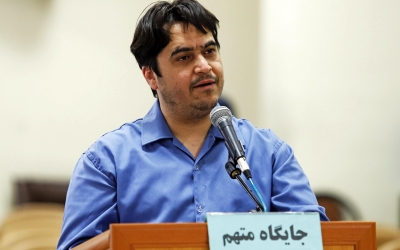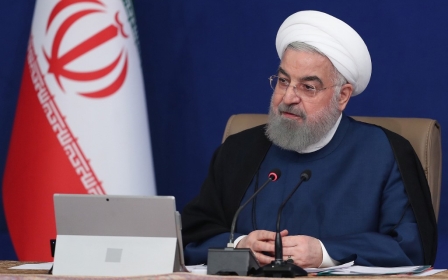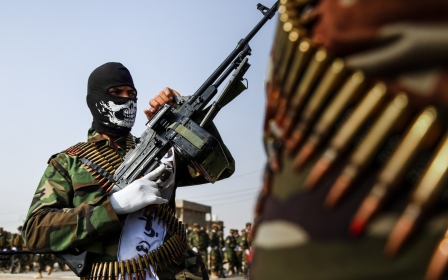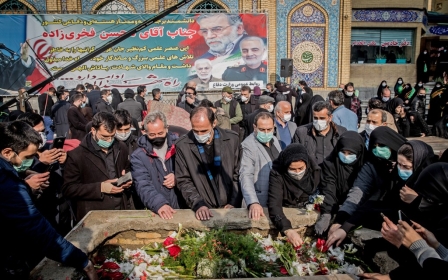Iranian press review: Former vice president for women's affairs jailed
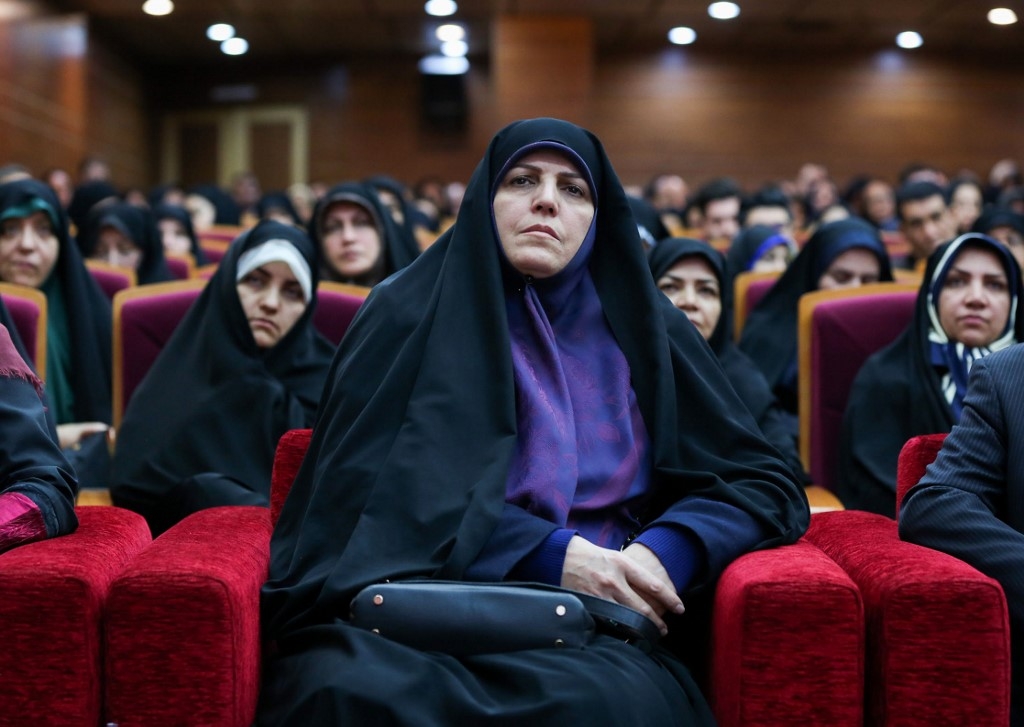
Journalists and reformist politicians jailed
Pressure on civil society and outspoken politicians is increasingly dramatically, with Iran’s conservative judicial officials handing down prison sentences to journalists, human rights activists and reformists politicians in President Hassan Rouhani’s administration.
On Saturday, Fars news agency reported that Shahindokht Molaverdi, Iran's vice president for women's affairs in Rouhani's first cabinet (2013–17), was sentenced to 30 months in prison.
A branch of Iran’s Islamic Revolutionary Court has found her guilty of “leaking classified information with the aim of disturbing national security” and “promoting depravity and sexual perversion”.
Molaverdi, a 55-year-old lawyer and academic, has denied all charges, saying that she would appeal the verdict.
According to local media the sentence was handed down to Molaverdi because she has spoken out against the execution of dissidents and the pressures on the minority Baha’i community, as well her support for gender equality in education.
Last week, another high-ranking official in Rouhani’s administration was also summoned to a branch of civil servants’ court and released on bail after the court hearing, Tasnim news agency reported.
Isa Kalantari, Rouhani’s deputy and head of Iran’s Department of Environment, was summoned to court for comments he made about Iran’s former supreme leader Aytollah Ruhollah Khomeini, in a 2017 interview.
A 40-second video from this interview has gone viral on Iranian social media, in which Kalantari says that Khomeini was "an illegitimate child" of the United States.
Following the spread of the video, Kalantari has publicly apologised for his comments. However, conservative politicians and media demanded his trial.
Meanwhile, Iranian journalists have also come under fire by the country’s judiciary.
On Tuesday, Ensaf News reported that Kayvan Samimi, veteran journalist and head of Iran’s freedom of the press association, was summoned to the Evin prison in Tehran to serve a three-year sentence.
The Committee to Protect Journalists (CPJ) has condemned the imprisoning of the 72-year-old journalist, who suffers from heart complications.
CPJ’s Middle East and North Africa Program Coordinator Sherif Mansour said: “Jailing an elderly journalist in the middle of a raging pandemic shows how much contempt the Iranian judiciary has for the press.”
In another blow to freedom of press, Iran’s Islamic Revolutionary Guard Corps (IRGC) intelligence branch arrested Vida Rabbani, Iranian journalist and a member of the reformist Union of Islamic Iran People Party.
On 4 December, Bahare Hedayat, a prominent Iranian student activist and former political prisoner, wrote on Twitter that Rabbani has gone on a hunger strike to protest her "illegal arrest".
Medicine shortage worsens
Iranians with kidney and liver transplants, as well as those receiving treatment for blood cancer, have faced tougher issues in finding their necessary medication since the imposition of new sanctions on Iran's economy by the US administration of President Donald Trump.
Since 2018, the United States has imposed over 1,000 sanctions on all sections of Iran’s economy and banking system, disabling the country from trading with other nations, as a part of Washington’s maximum pressure campaign against Tehran.
Iran’s healthcare system has been smashed by the sanctions as foreign companies and banks are reluctant to trade with Iran because of them.
The Ebtekar daily, in an article about the patients who could not find their medication in Iran, wrote that the import of medicines for cancer and special diseases was totally stopped, while the Iranian-made versions of the same medicines were not of corresponding quality.
The current medicine shortage in Iran has also caused anger at officials, according to the daily.
“Don’t they [officials] know that we don’t have medicine?” Farshid, who has undergone a kidney transplant surgery two years ago, told the paper.
“If they don’t know that, then what do they know? Is it my crime that I was born in Iran? I don’t want to die. I’m only 25 years old. I want to live.”
On Monday, Abdolnaser Hemmati, governor of the Central Bank of Iran, announced that Tehran’s attempts to make advance payments for Covid-19 vaccines had failed because of US sanctions on the county’s banking system.
Students climb mountains to access virtual learning
The Shahrvand daily has reported that students living in rural parts of the southwestern Fars province have been climbing mountains every day in order to access the internet they need to use the Shad homegrown app for virtual learning.
In November, the government shut down schools in Iran after a third wave of the coronavirus outbreak hit the country.
The daily reported that to have access to the internet, over 50 students in Chah Tala village walked for five kilometres to the top of the mountains to reach a location with a strong and stable internet connection.
For this daily journey, usually one of the parents or older siblings accompany the primary school students of Chah Tala. However, on some days students as young as eight years old have to go alone on their daily search for an internet connection.
Following the closing of schools in Iran, a group of philanthropists has donated tablets to Chah Tala’s school-age children. However, students in this village cannot yet participate in virtual classes due to internet connection issues.
According to Shahrvand, no internet coverage is available in 216 villages in the Fars province and 250 villages in the province have no access to electricity.
*The Iranian press review is a digest of reports that are not independently verified as accurate by Middle East Eye
Middle East Eye propose une couverture et une analyse indépendantes et incomparables du Moyen-Orient, de l’Afrique du Nord et d’autres régions du monde. Pour en savoir plus sur la reprise de ce contenu et les frais qui s’appliquent, veuillez remplir ce formulaire [en anglais]. Pour en savoir plus sur MEE, cliquez ici [en anglais].


